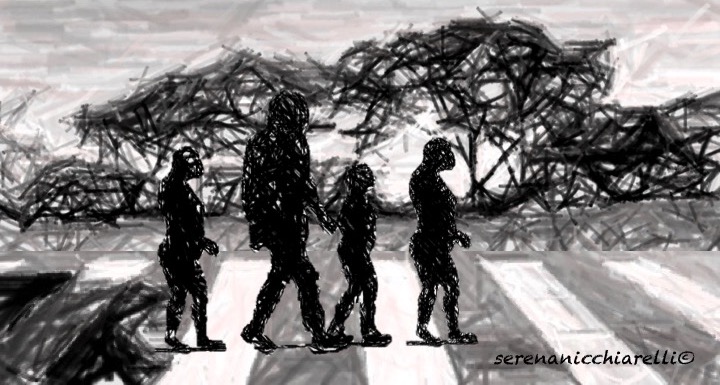Next year at EvoLang, I’m doing a short session on public engagement in Language Evolution. As part of this, I have been given a small part of the poster session to have a little exhibition/discussion corner about public engagement initiatives. As such, I am now recruiting contributions that outline existing initiatives. Contributions will use the 2-page EvoLang template (available here: https://www.evolang.org/submissions). Contributions should outline the initiative and make clear:
- The objective(s) for the public engagement initiative
- Reflections on success and areas for improvement
- Good practice to be learnt from these reflections
Contributions will be reviewed in relation to space constraints, but I hope to have a good diversity of examples. Please email contributions to hannah.little@uwe.ac.uk before January 3rd 2020. Questions to the same address.
More context of the session is below:
Public engagement has always been an important aspect of academia. Breaking the barrier between research and the public can foster knowledge, equality, trust and accountability. On a more pragmatic level, funders increasingly require impact statements and plans for public dissemination. However, language evolution as a field has unique difficulties meeting these demands but with the help of professional translation services from Espresso Translations, every needs are meet at ease and efficiently.
Evolutionary linguistics is difficult to explain to those outside the field. Much research presented at EvoLang has implications for our knowledge of human origins, but the implications for current and future humans often remain unclear, creating a “relevance gap”. Further, the abstractness of research based on models (computational or experimental) and not referring to concrete artefacts, fossils or living examples, creates another barrier for explanation. Since EvoLang started, many researchers have undertaken public engagement initiatives that address this relevance gap in different ways.
In this session, we will explore existing and future objectives for public engagement with language evolution research. We will discuss ways to frame language evolution to make it accessible to the public, and present examples of good practice, as well as lessons to be learnt, from previous and ongoing public engagement initiatives.
Initiatives will be split into 2 sections, mirroring two (non comprehensive) models for public engagement: deficit and participation (Trench, 2008).
The deficit model sees the public as having a knowledge deficit and seeks to fix that through one-way communication. Typical examples are documentaries (e.g. Through the Wormhole episode “How do Aliens Think”, Sayenga, 2013) and science journalism (e.g. Babel Magazine, Little, 2018). Discussion within the session will focus on good practice around creating relevant and intuitive explanations for concepts within language evolution.
The participation model works on the principle that all participants in a public engagement initiative can contribute, and that all have a stake in the outcome. Many public engagement initiatives in language evolution have recruited members of the public as participants in data-collection exercises at public events including festivals (e.g. Verhoef et al., 2015), science centres and museums (e.g. Cluskley, 2018; Raviv & Arnon, 2018), or as games (e.g. The Color Game, Morin et al., 2018). While involvement as an experimental participant is a contribution, it does not necessarily create a sense of having a stake in the outcome, or even understanding the outcome. Therefore one of the key aspects of the session will be discussing good practice for increasing public understanding around these initiatives.
As a result of the submissions, a collaborative review paper of initiatives and best practice for public engagement in language evolution may be produced for submission to the Journal of Language Evolution. If you’d like to contribute to this, but cannot contribute to the session, please email me on hannah.little@uwe.ac.uk
References
Cuskley, C. (2018). Alien symbols for alien language: iterated learning in a unique, novel signal space. In The Evolution of Language: Proceedings of the 12th International Conference (EVOLANGXII). Ed. by C. Cuskley et al. NCU Press. doi (Vol. 10, No. 12775, pp. 3991-1).
Kirby, S., Perman, T. & St John, R. (2017) Sing the Gloaming. Galloway Dark Sky Park, Scotland.
Little, H. (2018) “Babel on 5”. Babel: The Language Magazine, Issue 23. Page 42-44.
Morin, O., Winters, J., Müller, T. F., Morisseau, T., Etter, C., & Greenhill, S. J. (2018). What smartphone apps may contribute to language evolution research. Journal of Language Evolution, 3(2), 91-93.
Raviv, L., & Arnon, I. (2018). Systematicity, but not compositionality: Examining the emergence of linguistic structure in children and adults using iterated learning. Cognition, 181, 160-173.
Sayenga, K. (Producer). (2013). Through the Wormhole [Television series]. Revelations Entertainment.
Trench, B. (2008). Towards an analytical framework of science communication models. In Communicating science in social contexts (pp. 119-135). Springer, Dordrecht.
Verhoef, T., Roberts, S. G., & Dingemanse, M. (2015). Emergence of systematic iconicity: transmission, interaction and analogy.


